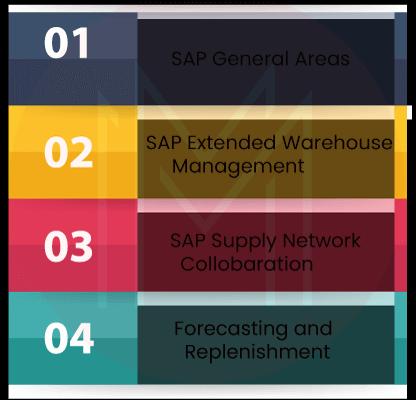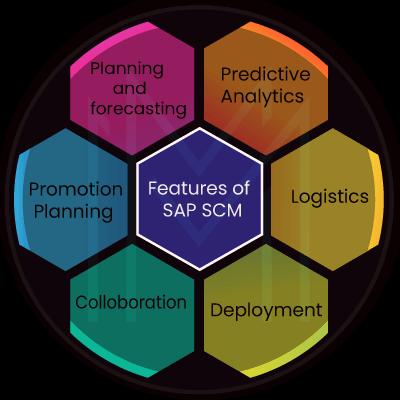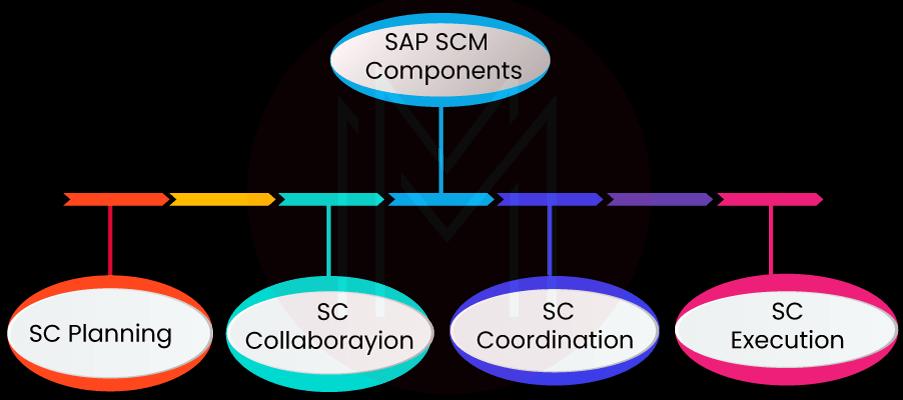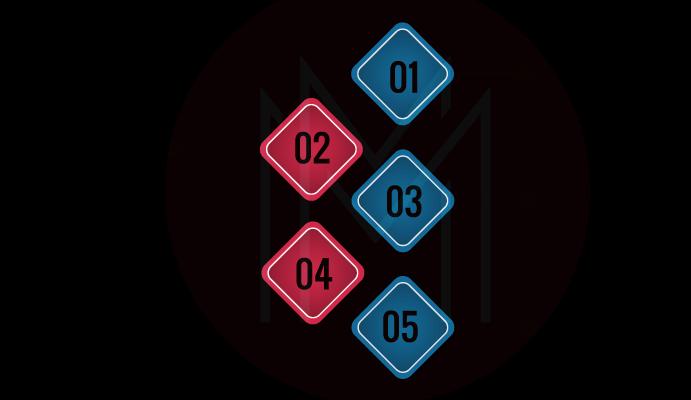- SAP Interview Questions
- SAP MDG Interview Questions
- SAP PS Interview Questions
- SAP C4C Interview Questions
- SAP ISU Interview Questions
- SAP Analytics Cloud Interview Questions
- SAP CO Interview Questions
- SAP CPI Interview Questions
- SAP VIM Interview Questions
- SAP SCM Interview Questions
- SAP IBP Interview Questions
- SAP RAR Interview Questions
- SAP TM Interview Questions
- SAP CPI Architecture
- What is SAP Transportation Management ?
- What is SAP PO - SAP Process Orchestration Architecture
- SAP PO Interview Questions
- What is SAP EDI?
- What is SAP Vistex?
- What is SAP Cloud Platform?
- What is SAP MRP - SAP MRP Tutorial
- What is SAP BTP?
- What is SAP Fieldglass?
- What is SAP C4C?
- What is SAP ISU
- What is SAP Solution Manager?
- SAP Analytics Cloud Tutorial
- SAP HCM Interview Questions
- What is SAP APO?
- SAP CPI Tutorial - A Beginner’s Guide
- What is SAP CAR?
- What is SAP PS - SAP PS Tutorial
- What is SAP IBP?
- What is SAP CPQ
- What Is Sap Netweaver
- What Is SAP BRIM
- What is SAP Master Data Governance (MDG)?
- What is SAP VIM?
- SAP MDG Architecture
- What is SAP MDG
- SAP HCM Tutorial
- SAP MDG Tutorial
- SAP TRM Interview Questions
Before diving into SAP SCM, we will take a glance at supply chain management and its importance.
Essentially, SCM or Supply chain management starts from raw material procurement to handing over the products to customers. It includes demand planning, product lifecycle management, production distribution, and more.
More precisely, Supply chain management includes the processes such as product design, material sourcing, manufacturing, warehousing, and distribution of products. It improves the efficiency of goods movements, delivers products on time, and heightens customer satisfaction.
Okay! Now, we will look at what SAP SCM is.
SAP SCM is one of the crucial modules of SAP. It optimizes demand and production planning, forecasting, and many other supply chain operations in a dynamic way. Also, it integrates with SAP ERP smoothly.
This blog packs what SAP SCM is, its prime features, SAP SCM modules, and many other topics.
Let’s unpack them now.
| What is SAP SCM - Table of Contents |
What is SAP SCM?
SAP SCM is software that streamlines the supply chain operations of a company effectively. Streamlining the operations is done by simplifying the logistics and managing the company's workflows.
Be it a small-type or large-scale business, SAP SCM is highly helpful in boosting the productivity of businesses to higher levels. The significant thing about SAP supply chain management is that you can apply this tool to optimize the supply chain processes.

If you are still wondering what is SAP SCM? Read on the following.
SAP SCM is a robust tool that integrates with planning applications and other SAP Modules. The planning applications can be listed as follows:
Moreover, SAP SCM optimizes supply chain accuracy, production scheduling, and transportation routes. Not only that, it enhances visibility across the supply chain, improves collaboration among stakeholders and demand forecasting, and more. So you can make informed decisions, improve operational efficiency, reduce costs, and thus enhances customer delight.
What’s more! SAP SCM improves business agility in addition to accurately adapting to the changing demands of markets.
We hope you have gained a clear picture of what SAP SCM is.
| If you want to enrich your career and become a professional in SAP SCM, then enroll in "SAP SCM Training" This course will help you to achieve excellence in this domain. |
Features of SAP SCM
SAP SCM comes with many critical features that simplify supply chain operations remarkably.

1. Planning and Forecasting
SCP SCM allows users to create supply chain operational plans with the help of present and past data. Therefore, you can make informed decisions, optimize materials management, and more.
2. Promotion Planning
SAP SCM comes with the ability to plan promotions. It can also plan, execute, and analyze promotions precisely.
3. Collaboration
With SAP SCM, you can connect with suppliers and customers smoothly. You can sync and share data between various business units as well as stakeholders. As a result, you can improve communication, simplify inventory management, match supply and demand, and hence enhance customer satisfaction to greater heights.
4. Deployment
Be it on-premises or cloud, you can smoothly deploy SAP SCM on any platform. You can also manage documents, take backups, and update without downtime. And you can share documents with stakeholders and internal team members.
5. Logistics
With SAP SCM, You can streamline order fulfillment, yard management, and warehousing. Along with that, you can tightly track goods from their starting point to their destinations.
6. Predictive Analytics
SAP SCM's AI capabilities assist in making in-depth analyses and digging out helpful insights based on supply chain data. It assists in forecasting demands for goods and plans the supply chain accordingly. Not only that, the insights help to improvise the supply chain processes better.
Overall, the SAP supply chain management features help to improve quality, implement supply chain plans, and many more. They help to minimize costs and maximize customer satisfaction.
Benefits of SAP SCM
1. Increased Productivity
SAP SCM increases supply chain productivity by allowing seamless communication between various business units. It also encourages collaboration among stakeholders. As a result, it speeds up supply chain processes and elevates business performance to new heights.
2. Increased Supply Chain Agility
SAP SCM tightly tracks inventory so that ups and downs in the inventory are adjusted in a neat way. It elevates the resilience of the supply chain network and boosts productivity.
3. Reduced Supply Chain Costs
Quality issues that come up in supply chain management can be reduced with SAP SCM. SAP supply chain management improves supply chain efficiency and lessens transportation taxes. Thus operational costs are minimized significantly.
4. Enhanced Customer Services
You can share information between customers and other stakeholders effortlessly with the help of SAP SCM. Also, SAP supply chain management helps optimize supply chain processes effectively, enhancing customer satisfaction.
5. Meeting Compliances
You can satisfy the supply chain compliances with the support of SAP SCM accurately. It helps to perform consistent supply chain processes.
6. High-level Transparency
SAP SCM offers increased visibility across the logistics of goods. It helps to detect supply chain issues and rectify them completely. Simply put, sustainability is improved.
7. Advanced Forecasting
SAP SCM allows you to forecast future trends in the supply chain with the assistance of present and past data. So you can make effective supply chain plans and match supply and demand closely.
Components of SAP SCM
It is essential to note that SAP SCM comes with many components, such as SC collaboration, SC coordination, SC Planning, and SC execution.

1. SC Planning
This component helps to generate supply chain operational plans. Here, the current and past data associated with the supply chain are used to foster the plans.
2. SC Collaboration
With this SAP SCM component, you can collaborate efficiently between stakeholders. The sharing of data among them helps to streamline supply chain operations. Above all, this component simplifies making agreements between stakeholders and scaling up businesses to greater heights.
3. SC Coordination
This SAP supply chain management component aids in making effective interactions between different business units. It accelerates supply chain operations and brings in operational excellence.
4. SC Execution
This component ensures whether supply chain plans are executed as required. Not just that, it also provides delivering expected results as well.
SAP SCM Modules
Know that SAP SCM has many modules that greatly improve supply chain processes and enhance productivity.
Let’s make a short note of them.

1. SAP APO - Advanced Planning and Optimization
Know that SAP APO is the core of a supply chain link. This SAP SCM module streamlines supply chain planning as well as supply chain management. It performs supply chain planning and optimization with the help of various SAP APO sub-components, such as demand planning, detailed scheduling, supply chain balancing, transportation management, etc.
Further, Demand planning allows you to forecast demands and conduct in-depth market research. Detailed scheduling aids in optimizing supply chain operations. Above all, you can optimize transportation routes effectively with SAP APO.
| Related Article - SAP APO Interview Questions |
2. SAP EM - Event Management
This SAP SCM module allows you to share data between different business units and stakeholders efficiently. The important thing is that data is transferred in SAP EM in the form of events.
Know that events allow people to respond to issues quickly and make concrete decisions. Moreover, they provide good visibility across the supply chain processes in the best manner possible.
3. SAP F&R - Forecasting and Replenishment
This module helps to optimize inventories in a supply chain. It minimizes inventories, thereby reducing costs remarkably. This module has many abilities, such as demand forecast, inventory optimization, order proposal management, replenishment calculation, business analytics, etc.
Another vital thing is that you can make calculations to identify the replenishment levels with this module accurately. In addition to that, you can optimize inventory based on safety stocks. You can also make synchronized planning and order proposal management to deliver timely orders.
4. SAP EWM - Extended Warehouse Management
SAP EWM is yet another module of SAP SCM that aids in making goods movements between warehouses intelligently. It is done with the automated as well as scheduled processing of goods movements. So you can make superior inventory management with the help of SAP EWM.
| Related Article - SAP EWM Tutorial |
5. SAP SNC - Supply Network Collaboration
This SAP module allows suppliers to collaborate on a single platform. So suppliers can share information regarding inventory, goods demand, and others seamlessly. The significant thing about this module is that it has many workflows supporting improving supplier collaboration.
For instance, SAP SNC executes many workflows, such as demand forecasts, scheduling agreements, advanced shipping notifications, purchase orders, work orders, and so on.
SAP SCM Applications
SAP SCM comes with a comprehensive array of applications.
Let’s address them below one by one.
- Demand Planning
With SAP SCM, we can forecast and manage the demands of goods. It will mainly help organize the supply chain processes to transit the goods. Besides, we can use demand models to predict consumer response when there are ups and downs in the prices of goods in markets.
- Supply Chain Logistics
With SAP SCM, you can streamline supply chain logistics in a reliable, resilient, and sustainable way. More to the point, you can make collaborative transportation, optimize warehouse management, quick order processing, and so on.
- Supply Network Planning
SAP SCM allows you to make informed decisions with the support of real-time data analytics and insights. It supports optimizing inventory, business planning, and supply chain networks.
- Manufacturing
SAP SCM responds to market changes swiftly. It helps to enhance quality and costs. It also aids in eliminating risks in the production processes and supply chain altogether. It is done with the help of Integrated Manufacturing Execution Systems (IMS).
Moreover, SAP supply chain management allows you to make detailed scheduling and production planning. It ensures product quality and compliance.
- Global ATP - Global Available To Promise
Global ATP is a part of SAP APO that provides real-time visibility across inventory and supply chain operations. You can use Global ATP to get the required information quickly. Also, it scales up production capacity to higher levels.
- PP/DS - Production Planning and Detailed Scheduling
You can make procurement to meet the product requirements. With SAP SCM, you can quickly develop proposals for procurement. Also, you can plan resource schedules in an organized way.
Importantly, you will reduce delivery and lead times and increase throughput with the help of PP/DS.
- Warehouse Management
With SAP SCM, you can reduce labor costs, increase the accuracy of inventory management, and utilize warehouse spaces efficiently.
- Transportation Planning
SAP SCM supports optimizing and managing transport operations. It uses special scheduling tools to improve goods delivery and organize transport drivers. Thus, you can improve delivery times and reduce costs drastically.
| Visit here to learn SAP SCM Training in Hyderabad |
The Future of Supply Chain Management
No wonder supply chain management will play a pivotal role in business performance by leveraging cutting-edge technologies.
Following are some potential developments that could happen in supply chain management in the recent Future.
- Many companies will use robots to simplify their warehouse operations.
- Many SCM tools will employ microservices architecture.
- Intelligent edge ecosystems and digital supply chain twins will play a vital role in supply chain decisions.
- The SCM software will be added with IoT, Embedded Advanced Analytics (AA), and Artificial Intelligence tools.
- There will be a big boom in cloud Supply chain solutions.
- Blockchain technology will become inevitable in supply chain management
- Integration with the 5G network will help track goods' movement more closely.
SAP SCM FAQs
1. Are SAP SCM and SAP SD the same?
Not at all. SAP supply chain management deals with the supply chain of a business entirely. SAP SD manages the sales and distribution of a business. The important thing is that distribution is part of SCM.
2. Who can use SAP SCM?
Sales and supply, product manufacturing, and distribution businesses can use SAP supply chain management widely.
3. What is the difference between SAP SCM and Procurement?
SAP supply chain management handles the entire supply chain process, whereas SAP procurement deals with demand management. SAP Procurement optimizes inventory as well as sales and planning. But SAP supply chain management governs the entire supply chain processes from material procurement to product distribution.
4. Is SAP SCM an SAP Module?
Yes. SAP SCM is one of the SAP modules. It is integrated with SAP ERP tightly.
5. Is coding knowledge required to work with SAP SCM?
Yes. Basic to medium-level coding knowledge is required to work with SAP SCM effectively.
6. What are the different SAP SCM Tables?
TCBP_MOD, LFLR, PVKT, and TBKBC are a few SAP SCM tables.
| Related Article - SAP SCM Interview Questions |
Conclusion
Let’s wrap off! This blog might have helped you to learn what SAP SCM is in greater detail. To summarize, SAP SCM streamlines supply chain processes with the support of automation capabilities, collaboration, demand planning, and so on. It supports speeding up business processes and enhances business performance.
As you know, anyone wishing to succeed must acquire knowledge and hone their skills continuously. On this note, if you want to further hone your SAP SCM expertise, you can attend training in MindMajix. Enroll in SAP SCM Training to sharpen your skills in SAP SCM.
 On-Job Support Service
On-Job Support Service
Online Work Support for your on-job roles.

Our work-support plans provide precise options as per your project tasks. Whether you are a newbie or an experienced professional seeking assistance in completing project tasks, we are here with the following plans to meet your custom needs:
- Pay Per Hour
- Pay Per Week
- Monthly
| Name | Dates | |
|---|---|---|
| SAP SCM Training | Feb 17 to Mar 04 | View Details |
| SAP SCM Training | Feb 21 to Mar 08 | View Details |
| SAP SCM Training | Feb 24 to Mar 11 | View Details |
| SAP SCM Training | Feb 28 to Mar 15 | View Details |

Madhuri is a Senior Content Creator at MindMajix. She has written about a range of different topics on various technologies, which include, Splunk, Tensorflow, Selenium, and CEH. She spends most of her time researching on technology, and startups. Connect with her via LinkedIn and Twitter .




